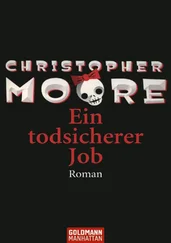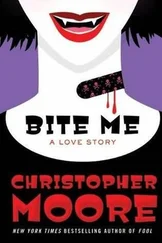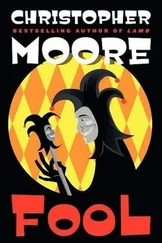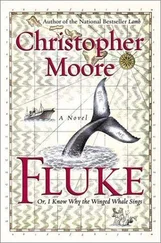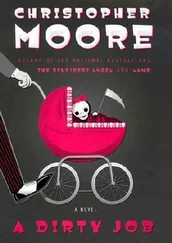“He was afraid to leave,” Beth Curtis said.
Sebastian Curtis looked as if he was going to strike his wife. “That’s not true, Beth.”
“Sure it is. You hadn’t been off this island in years. You forgot how to live with real people.”
“They are real people.”
As amusing as it was to watch the perfect couple illusion go up in flames before his eyes, Tuck put out the fire. “A Learjet and millions in electronics. Looks like you did pretty good with no funding, Doc.”
“I’m sorry.” And he looked as if he was. “I tried to make it on what the islanders could raise by selling copra, but it wasn’t enough. I lost one of my patients, a little boy, because I didn’t have the funds to fly him to a hospital that could give him the care he needed. I tried harder to convert the natives, thinking I might get another mission to sponsor us, but how can you compete with a Messiah people have actually spoken to?”
Tuck didn’t answer. Having spoken to the “Messiah” himself, he was convinced already.
Sebastian Curtis drained his glass of wine and continued. “I sent letters to churches, foundations, and corporations all over the world. Then one day a plane landed out on the airstrip and some Japanese businessmen got out. They wouldn’t fund the clinic out of charity, but if I could get every able-bodied islander to give blood every two weeks, then they would help. And every two weeks the plane came and picked up three hundred pints of blood. I got twenty-five American dollars for every pint.”
“How’d you talk the natives into it? I’ve given blood. It’s not that pleasant.”
“They were coming on a plane, remember? Airplanes are a big part of these people’s religion.”
“If you can’t beat ’em, join ’em, huh?”
“They always brought something on the plane for the natives. Rice, machetes, cooking pots. I got all the medicines I needed and I was able to get the materials to build most of this compound.”
Beth Curtis stood up. “Oh, as much as I love hearing this story, I think we should eat. Excuse me.” She went to the kitchen area, where a large pot was boiling on the stove, reached into a wooden crate on the floor, and came up with a large live lobster in each hand. The giant sea bugs waved their legs and antennae around looking for purchase. Beth Curtis held them over the pot, puppeting them. “Oh, Steve, you got us a room with a hot tub. How wonderful,” she made the left lobster say.
“Yes, I’m very romantic,” she said in a deeper voice, bouncing the bug with the words. “Let’s go in now. I’m a little tense.”
“Oh, you’re wonderful.” Then she dropped the lobsters into the boiling water.
A high-pitched squeal came from the pot and Beth Curtis went to the crate for another victim.
“Beth, please,” the doctor said.
“I’m just trying to lighten things up a little, ’Bastian. Be still.”
She held the second lobster over the pot, then looked at Tucker as she began her narration. “This is the crazed doctor talking. There’s always a crazed megalomaniacal doctor. It’s traditional.”
Sebastian Curtis stood up. “Stop it, Beth!”
She affected a German accent. “You see, Mr. Bond, a man spends too much time on an island alone, he changes. He loses his faith. He begins to think of ways to improve his lot. My associates in Japan came to me with a proposal. They would send me to a seminar in San Francisco to brush up on organ transplant surgery. I would no longer be selling blood for pocket change. They would send me specific orders for kidneys, and I could deliver them within hours for a cool half-million apiece. A dying man will pay a lot for a healthy kidney. In San Francisco I met a woman, a beautiful wo-man.” Beth came out of character for a moment, grinned, and bowed quickly, then went back to terrorizing the lobster. “I brought her here, and it was she who devised the plan to get the natives to comply with having their organs removed. Not only beautiful, but a genius as well, and she had a degree as a surgical nurse. She used her abundant charms on the natives”—she held the lobster where it could
have a good view of her cleavage—“and the savages were more than happy to donate a kidney. Meanwhile, I have become rich beyond my wildest dreams, and as for you, Mr. Bond, now it’s time for you to die.” She dropped the lobster into the pot and began to shake with a diabolical laugh. She stopped laughing abruptly and said, “They should be ready in about ten minutes. Salad, Mr. Case?”
Tuck couldn’t think. Somewhere in that little puppet show of the damned was a confession to cutting out people’s organs and selling them like so much meat, and the doctor’s wife not only didn’t seem to have any regrets about it, she was absolutely gleeful. Sebastian Curtis, on the other hand, had his head down on the table, and when he did look up, he couldn’t make eye contact with Tuck. A minute passed in uncomfortable silence. Beth Curtis seemed to be waiting for someone to shout “Encore!” while the good doctor gathered his wits.
“What I’d like you to understand, Mr. Case, is that I—we—couldn’t have taken care of these people without the funds we’ve received for what we do. They would have no modern medical care at all.”
Tuck was thinking again, trying to measure what he could say and what he wasn’t willing to reveal. He couldn’t let them know that he knew any-thing at all about the Shark People, and, as Vincent had implied, he’d better find out more before he threw down the dog tags and Pardee’s notebook. The doc was obviously stretched pretty tight by the situation, and Mrs. Curtis—well, Mrs. Curtis was just fucking scary. Play it chilly. They’d brought him here because they thought he was as twisted as they were. No sense in ruining his image.
“I understand.” Tuck said. “I wish you’d been a little more up front about it, but I think I get all the secrecy now. But what I want to know is: Why can’t I drink if you guys do? I mean, if you guys can perform major surgery when you’re half in the bag, then I can fly a plane.”
Beth said, “We wanted to help you with your substance abuse problem. We thought that if you weren’t exposed to other drinkers that you’d relapse when you went back home.”
“Very thoughtful of you,” Tuck said. “But when exactly am I supposed to go home?”
“When we’re finished,” she said.
The doctor nodded. “Yes, we were going to tell you, but we wanted you to become used to the routine. We wanted to see if you
could handle the job first. We’re going to do the operations until we have a hundred million, then we will invest it on behalf of the islanders. The proceeds will assure we can continue our work and that the Shark People will be taken care of as long as they are here.”
Tuck laughed. “Right. You’re not taking anything for yourself. This is all a mercy mission.”
“No, we may leave, but there’ll be enough to keep someone running this clinic and shipping in food and supplies forever. And then there’s your bonus.”
“Go,” Tuck said. “Go ahead.”
“The plane.”
Tuck raised an eyebrow. “The plane?”
“If you stay until we finish our work, we will sign the plane over to you, plus your salary and any other bonuses you’ve accumulated. You can go anywhere in the world you want, start a charter business if you want, or just sell it and live comfortably for the rest of your life.”
Tuck shook his head. Of all the weirdness that had gone on so far, this seemed like the weirdest, if only because the doctor seemed so earnest. It might have had something to do with the fact that it was one of those things that a guy hopes all his life he is going to hear, but convinces himself that it’s never going to happen. These people were going to give him his own Learjet.
Читать дальше


